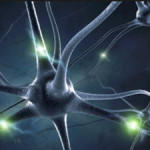 A review in the prestigious journal JAMA Psychiatry suggests that there may be a clear biological explanation of how medications and psychotherapy work together to treat depression.
A review in the prestigious journal JAMA Psychiatry suggests that there may be a clear biological explanation of how medications and psychotherapy work together to treat depression.
The authors note that recent, unexpected, research findings suggest that antidepressant medications reactivate the brain’s ability to relearn old lessons. The medications allow the brain to modify old neuron connections in a way that is usually only possible in the brains of young people.
They review data that suggests that recovery from depression, rather than being caused by increases or decreases in specific brain neurotransmitters (serotonin or norepinephrine) is actually the result of changes in the physical connections in parts of the brain that control mood related behavior. In other words, medications enhance the brain’s ability to unlearn old connections (between stress and depression, for example) and to relearn ones that are more adaptive.
This data suggests that “pre-treatment” with antidepressants may enhance the ability of psychotherapies to teach people with depression new associations, and new patterns of response to stressful situations.
In humans there is also evidence that part of what may make depression so hard to treat is that the depressed state further inhibits neuronal plasticity (the ability to change maladaptive connections). In other words, people with depression are less able to change brain connections than other adults.
Antidepressants may counteract this tendency and allow brains that are locked into depression to process new information via psychotherapy.
Neuronal Plasticity and Recovery from Depression. Eero Castren. JAMA Psychiatry. 2013:70(9):983-989. doi:10:1001/jamapsychiatry.2013.1
